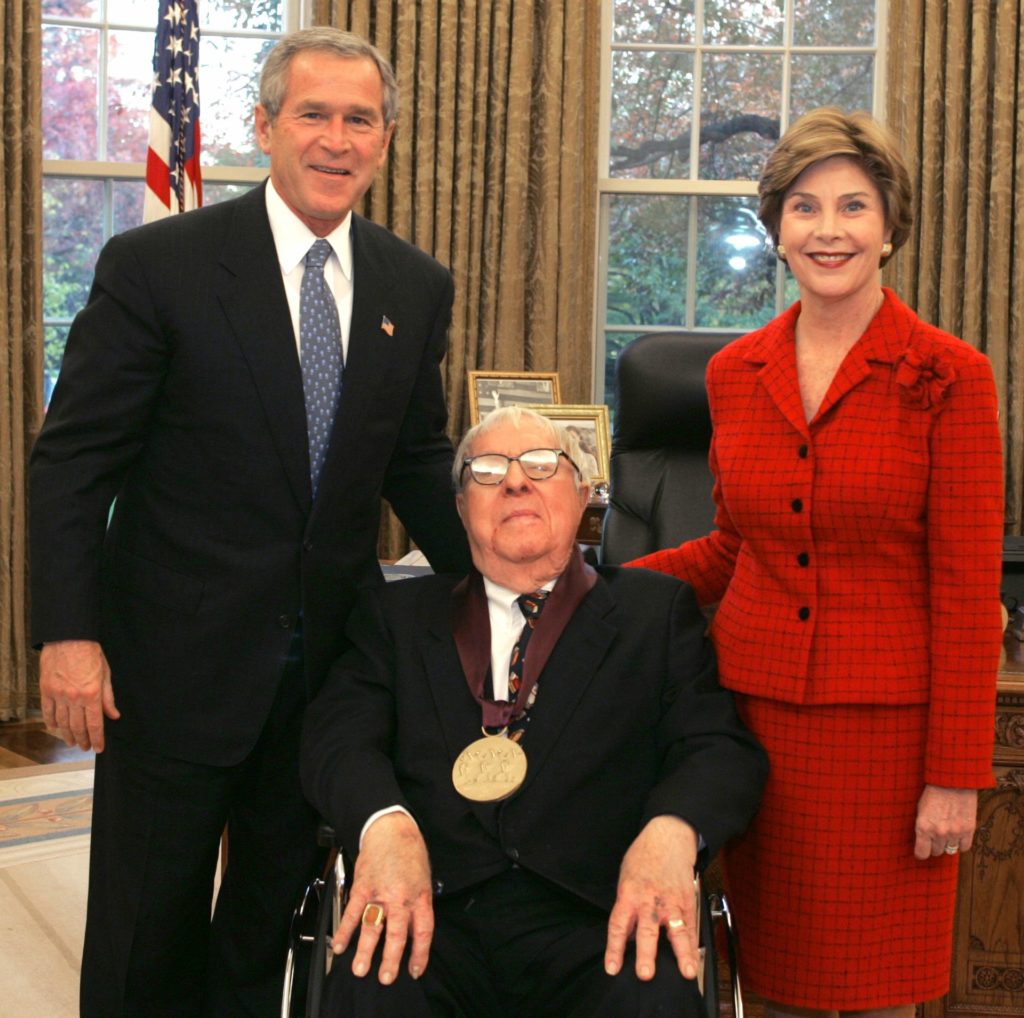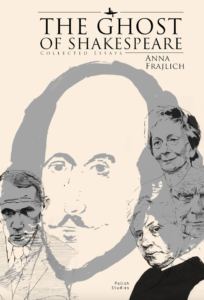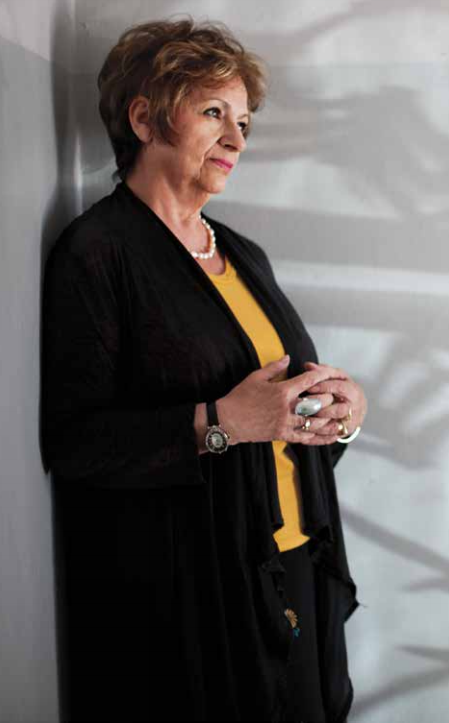Dana Gioia, Sam Weller on Ray Bradbury @100: “Bradbury never went to college — that’s one reason why he was so original.”
Tuesday, December 29th, 2020
Dana Gioia and friend (Photo: Starr Black)
We’re in the last days of the Ray Bradbury centennial. The influential science fiction writer was born on August 22, 1920, and died eight years ago in Los Angeles. Bradbury’s biographer Sam Weller interviews poet Dana Gioia, former chairman of the National Endowment of the Arts, about the author of Fahrenheit 451, The Illustrated Man, and others in today’s Los Angeles Review of Books. “Bradbury never went to college — that’s one reason why he was so original. He was not indoctrinated in the mainstream assumption of the superiority of the realist mode. He educated himself,” said Dana. (Thanks to jazz scholar Ted Gioia for the heads-up about this Q&A.)
When was the first time you met Ray Bradbury in person?
I never met him until he came to Washington to receive the National Medal of Arts. No science fiction writer had ever won the National Medal. I felt it was important to honor areas of American creativity previously ignored. (We eventually awarded medals to an animator, literary translator, set designer, comic book artist, graphic designer, electrical guitar pioneer, and cartoonist — while never neglecting the traditional fine arts.) Ray was the first of these new honorees. The first time I spoke to him was the phone call informing him about the medal. He was effusively delighted. His doctors told him not to come. Ray came anyway, in his wheelchair, with three of his daughters and yourself. He loved every moment. He was like a kid at Disneyland.
This began a friendship that lasted until the end of his life. I continued to visit Ray when he was on his deathbed. He couldn’t read any longer, so I would read to him. We had a long and affectionate relationship.
Do you have a favorite moment or favorite memory of Ray?
My favorite memory of Ray came from a science fiction convention at the University of California at Riverside. Not the convention itself but trying to get to it. Ray was the keynote speaker. He asked if I would introduce him. The speech was scheduled in a huge building at the center of campus. But there was no direct way to get Ray’s wheelchair into the building. Every entrance had high steps designed for 18-year-old college students. Our faculty hosts eventually took us around back to the service entrance by the garbage dumpsters. I pushed Ray through a series of underground corridors until we got to a huge elevator, which had been designed to bring trolleys up from the food service kitchen.

“No science fiction writer had ever won the National Medal.”
We went up a floor or two, and a group of guys from the food service came in with their packed trolleys. They were all young Mexicans speaking Spanish. They noticed this old man in a wheelchair. The professors all froze up. They felt uncomfortable. But these were the sort of guys I grew up with. I turned to them and asked in my lousy Spanish if they knew who this man was. They shook their heads. Then I told them he was “el escritor famoso, Ray Bradbury.” My hosts looked at me as if I were crazy. But then the guys shouted, “Ray Bradbury!” Every one of them knew who he was. Then they crowded around to get his autograph.
Wow. Great story.
The moment strikes me as the best measure of Bradbury’s fame. Can you imagine the same reaction, indeed any reaction, to Saul Bellow or John Updike? These immigrant workers, whom American intellectuals consider beyond the compass of literature — you know all the social, cultural, and racial barriers that exist — were part of Ray’s audience.
And Ray was delighted to meet them. He chuckled and signed napkins and order slips. He had a global audience. He spoke to people novelists don’t usually reach. That is something that we should honor. Bradbury had an imagination that invited people in. I’m one of them. I know I’m not the only writer of my generation who feels Bradbury made a fundamental contribution to my intellectual and literary formation.
Read the whole thing here. And you can watch Steve Wasserman interview Ray Bradbury for Truthdig here. They discuss the history of book stores, science fiction novels and how the newspaper should teach us to love life.



 Why did he do it? Here’s the way himself explained it in an interview with Peter Vail, included in the book:
Why did he do it? Here’s the way himself explained it in an interview with Peter Vail, included in the book:

 In A Legacy, the past returns thanks to a legal action brought against MI6 over the events surrounding the deaths of Leamas and Gold. Public exposure threatens the now glitzy, tight-suited inhabitants of “Spyland Beside the Thames”, the agency’s “shockingly ostentatious new headquarters” in Vauxhall. Peter Guillam, once Smiley’s deputy, is called back from retirement (though there is no such thing in MI6). … Smiley moves in and out of the action in the past before, finally, appearing in the present. Guillam asks him what all their work had been for. England? No. Europe.
In A Legacy, the past returns thanks to a legal action brought against MI6 over the events surrounding the deaths of Leamas and Gold. Public exposure threatens the now glitzy, tight-suited inhabitants of “Spyland Beside the Thames”, the agency’s “shockingly ostentatious new headquarters” in Vauxhall. Peter Guillam, once Smiley’s deputy, is called back from retirement (though there is no such thing in MI6). … Smiley moves in and out of the action in the past before, finally, appearing in the present. Guillam asks him what all their work had been for. England? No. Europe.

 … If you didn’t know Joseph at all, what would you have made of him after reading the essay ‘A Collector’s Item’ [about British spy Kim Philby]? Is it written by a poet, a university professor, a philosopher or an amateur-psychologist? Are his analyses of the phenomenon correct, profound or superficial?
… If you didn’t know Joseph at all, what would you have made of him after reading the essay ‘A Collector’s Item’ [about British spy Kim Philby]? Is it written by a poet, a university professor, a philosopher or an amateur-psychologist? Are his analyses of the phenomenon correct, profound or superficial? We’ve written about award-winning Polish poet and writer
We’ve written about award-winning Polish poet and writer 

 Was Nobel writer
Was Nobel writer 
